Why We Choose Year-Round Homeschooling
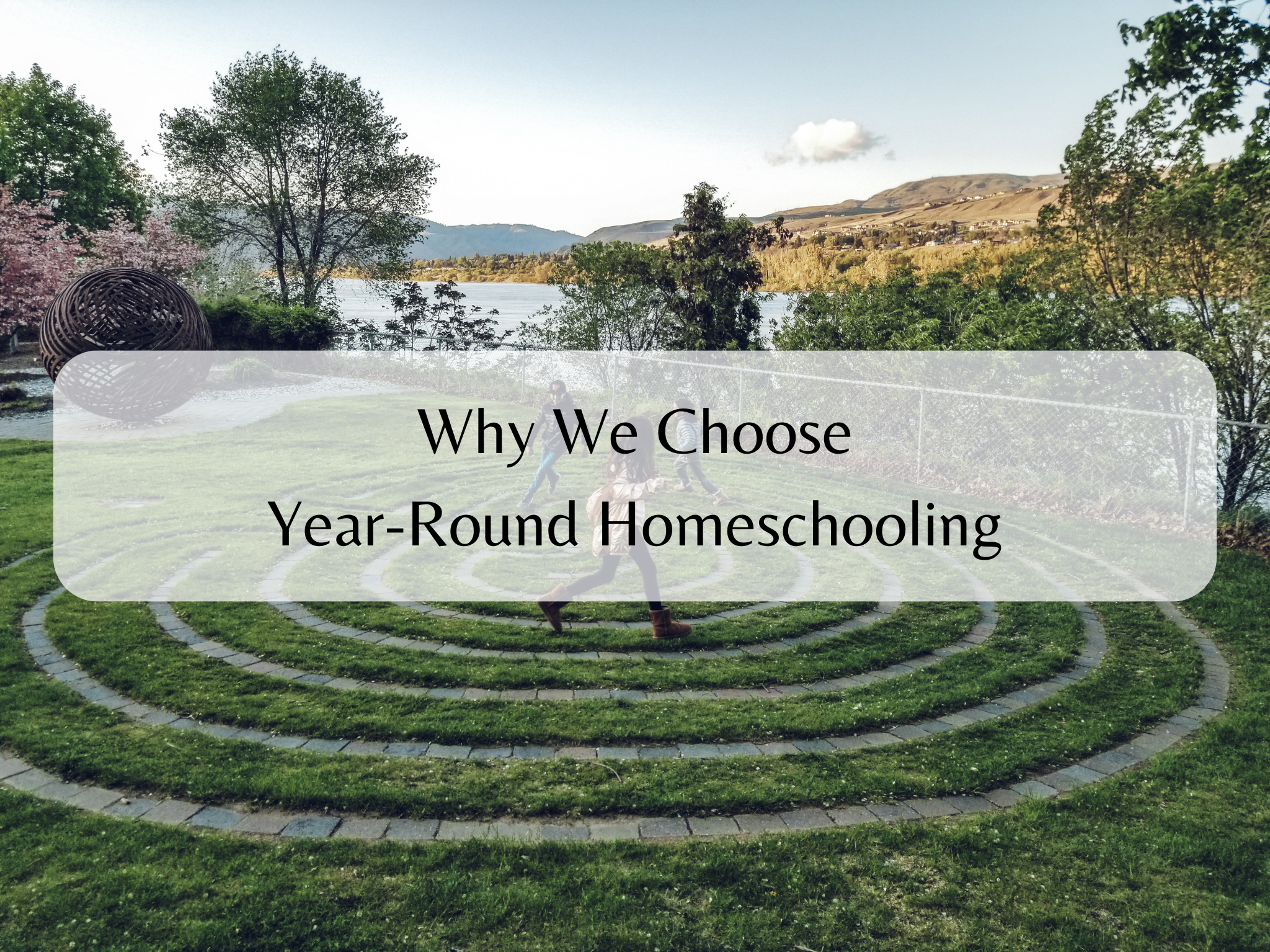
Happy Summer Solstice aka First Day of Summer!
While many other fams are settling into a “no school” rhythm, we are continuing to plug along with our “lifeschooling” one.
We’ve always been year-round homeschoolers, and in today’s post I share why.
Turn Learning “Off”?!
The norm of only dedicating 9-10 months of the year for learning just never jived with me, even when we started out on our homeschool journey over a decade ago.
Even when using boxed curriculum in those early years, I never liked the idea of creating a culture that tells my kids you turn learning “off” during summer, only to have to painfully gear up again for fall.
What we did instead was spread out our boxed curriculum assignments over the course of 365 days with more frequent breaks, to foster a slow-and-savor approach.
Because of this, we were able to avoid the angst most other homeschoolers experience throughout the school year of “feeling behind” on their lessons and trying to stress-jam schoolwork onto their kids so they could take their typical winter, spring, and summer breaks.
Of course, ditching boxed curriculum altogether, in favor of natural, self-directed learning lends itself really well to a year-round homeschooling rhythm.
Because, really, it isn’t so much a rhythm as it is a whole paradigm of living.
A Mindset, Not a Kind of Schedule
Year-round homeschooling is rooted in the mindset that learning truly does happen all. the. time. And it doesn’t end when you earn your high school diploma or even higher education degrees.
Which is why we ended up letting go of boxed curriculum and now live “life without school”.
Every season (and every day, actually) is a new adventure, a new opportunity to be in awe and wonder of the world God placed us in.
It may look like a nose in a book (even a textbook). It may mean making videos instead of writing essays. It may mean drilling math facts one day, but building a model of a home out of styrofoam board the next. It may look like dealing with negative customers at your first job or intentionally getting to know someone knew at church. It may mean taking a semester-long class on something you are interested about or spending the day in nature and letting the spirit adventure be your guide.
Why box all that learning and growing and meaningful connections into grades and school years and four walls?
The Real World Operates 12 Months of the Year
As a lifeschooling mom, I have a firm conviction that learning should not be disjointed from real life rhythms.
Unless you choose institutional education as a career path, you don’t typically get 2-3 full months off work (and even some of the teachers I know don’t really get all that time off because of the work they do outside of the classroom to wrap up the end of a year and to prepare for the next one!).
Most people show up for their jobs or run their businesses every month of every year, and I wanted to help my kids grow that muscle of consistency while they were young.
Travel When No One Else Is
We used to do more traveling when the kids were younger, taking off in our Class C motorhome for weeks at a time to explore our country.
With year-round homeschooling, we didn’t have to wait only for summer to roll around in order to do that! Because of this “learning all the time” mindset, we simply left more of our table work at home and switched gears for roadschooling adventures, without ever training my kids that they were “off school”.
Again, they were and still are always “in school”!
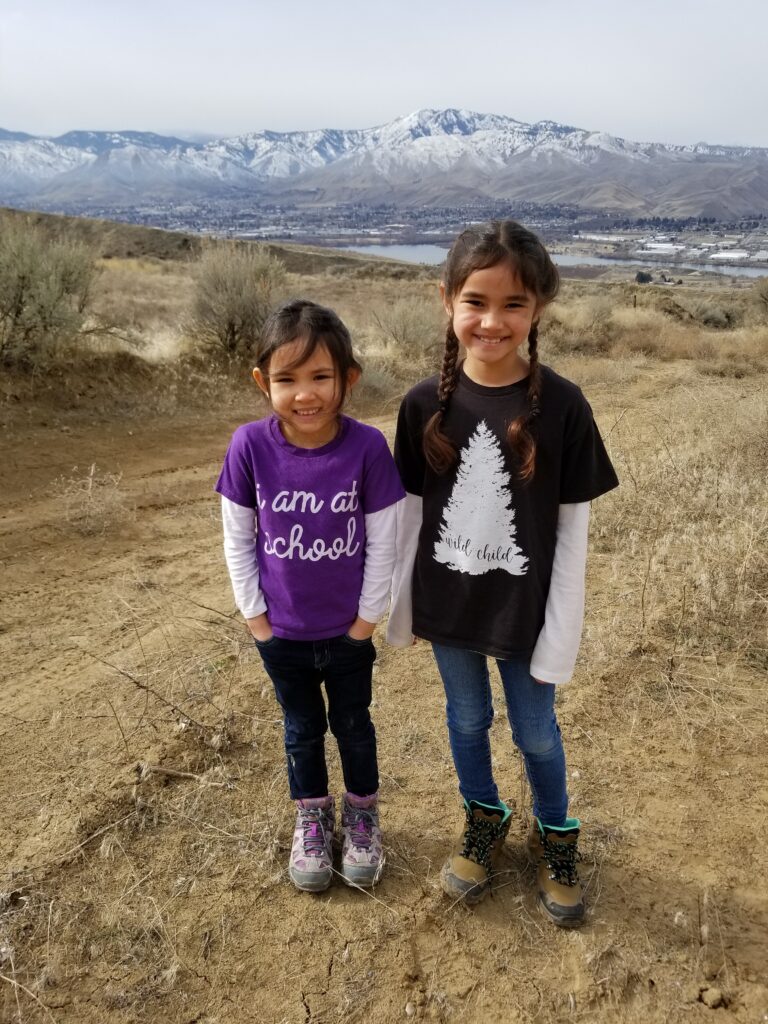
Shift with Each Season
With all that said, our family does make shifts with each season.
Summer
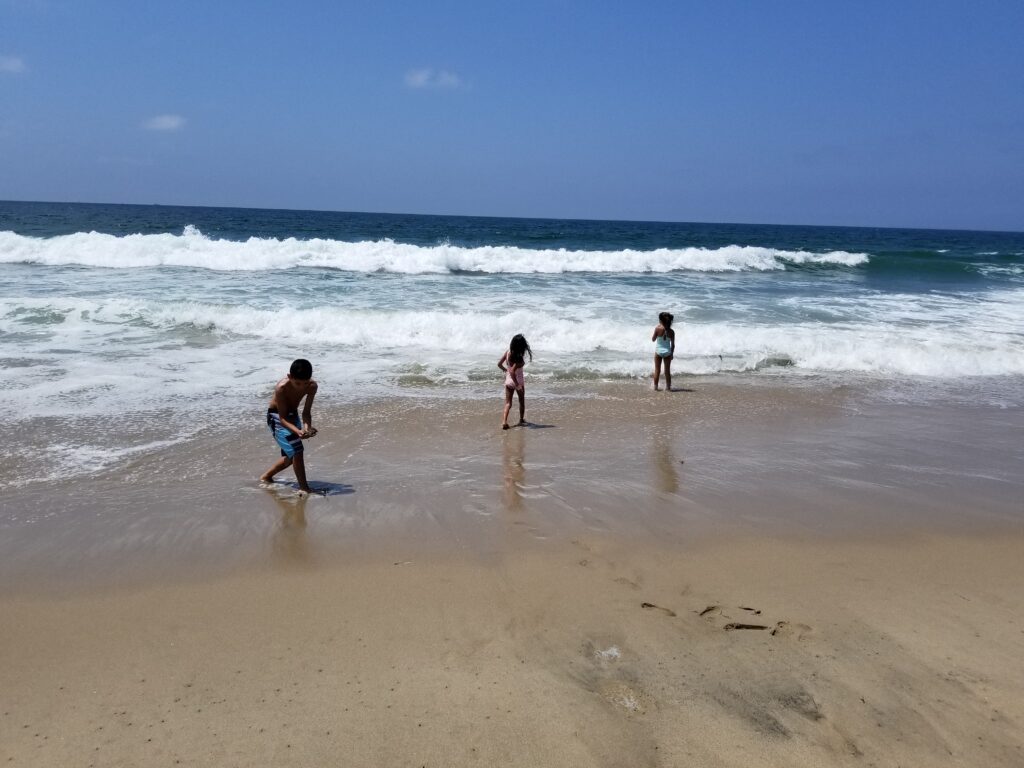
- Warm Weather and Water
Since we live in a place with four seasons, we take advantage of the full strength of the sun this time of year! A lot of our learning is inspired by the extended time outside or being near/in water (learning about oceans and sea life, wildflower identification, survival skills development, astronomy, bugs, etc.).
- More Time with Friends
Most of my kids’ friends follow conventional rhythms so this means we also leave a lot of margin for them to join their friends for typical summer fun. This means we don’t typically do more than one family read-aloud at a time (usually we have 3-5 at a time).
- Kids Markets
Our community hosts a kids’ market every summer and our girls spend a lot of their time and energy honing their entrepreneurial skills by participating in them.
- Gardening/Farm-to-Table
In years past, my kids learned how to tend to their gardens (we are still wrapping up our new home build so don’t have a garden yet!). They also learned to harvest their fruit and vegetables and turn them into tasty dishes.
Fall
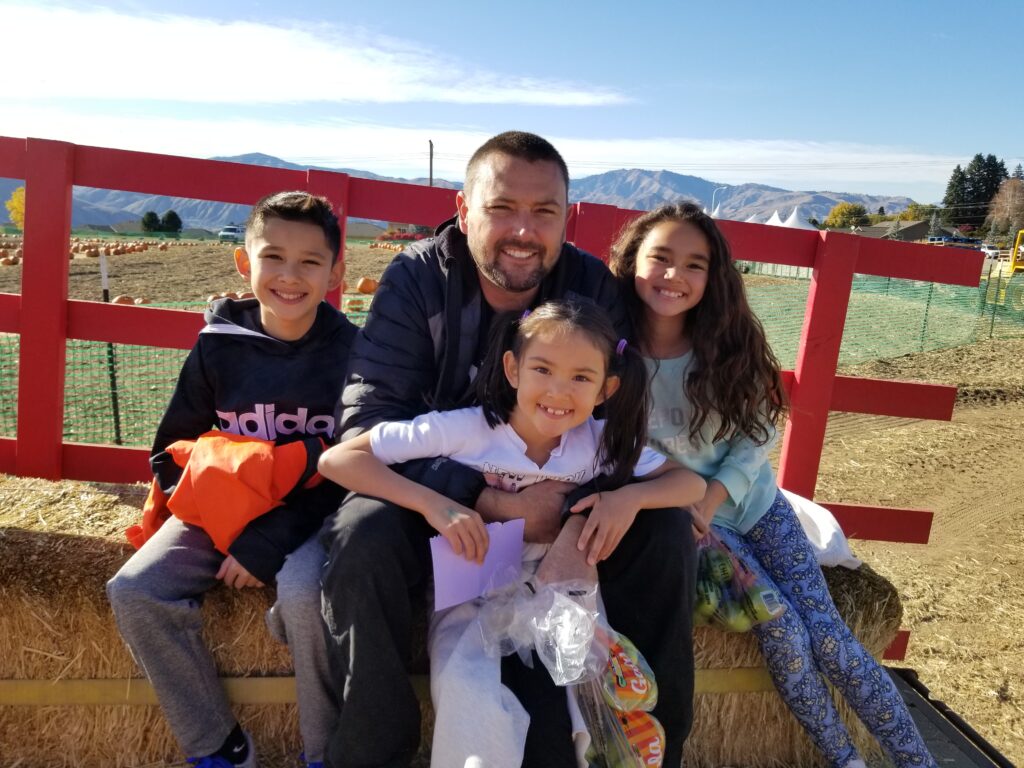
- Hiking and Forests
It can get really hot and smoky in the summer where we live so we usually do our hiking and forest exploration in the fall (plus there are less mosquitoes!). This is when we observe and talk more about trees, leaves, and forest animals.
- Establishing Routine
As everyone heads back into school mode, we adjust accordingly as we shift from a rhythm of outdoor play to a rhythm of home and rest, re-establishing routines.
- Service
In the fall, we focus more on service opportunities. I also use this time of year to reiterate the first-world privileges we have and re-instill a big picture perspective about how other people live in the world. This has always been a passion of mine, and while this is something I talk about with my kids all throughout the year, I double down by using our Morning Collective Time to read from World Vision/Compassion International/Samaritan’s Purse magazines/websites. I started this years ago in an attempt to preempt the temptations that would come once the noisy holiday season would roll around.
Winter

- Snow Fun!
We only live 15 minutes from our local ski resort so our kids spend a lot of time doing “winter P.E.” aka skiing/snowboarding. Cozy stories about family or winter fill up our book baskets. We especially loved The Family Under the Bridge and The Long Winter.
- Advent School
Every December, I’ve led my kids through Advent School or Christmas School, where we learn all about Christmas traditions and legends from all around the world as well as prepare for the celebration of Jesus’ birth.
- Our Learning Looks a Lot Like Everyone Else’s
Besides Christmas time, there really isn’t much going on in the cold, dreary months of winter! A lot of time is spent at home (if the kids aren’t up at the mountain), so you will find them doing more studious learning … pulling out their workbooks (we love all the ones from Usborne), writing up stories or documenting life in their journals, spending focused hours something new or continuing to pursue a long-held interest.
- Movies and Theater Productions
We definitely cozy up this time of year and watch lots of movies related to topics we’ve been learning about in the fall. We also treat ourselves to the fun community theater productions that happen this time of year, especially during the holidays.
Spring
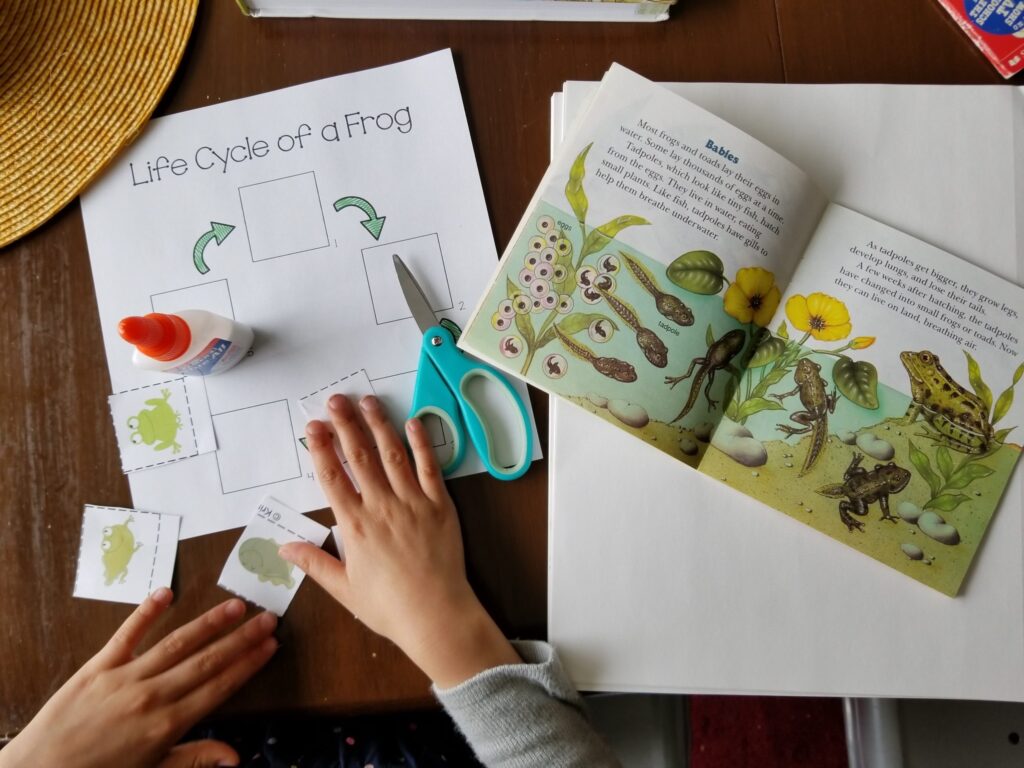
- Signs of Life
We begin to emerge from our den, LOL! Much of our learning in spring is inspired by life and life cycles. This is when we’ve studied frogs and butterflies, explored local ponds, and focused more on bird watching. The girls also plant to their garden seeds.
- Lent and Easter
Years ago, I was convicted about the fact I spent more time and energy teaching my kids about Advent/Christmas than I did about Lent/Easter. Of all the holidays on the Christian calendar, Easter should get all the glory, because that baby we honor in December didn’t stay a baby. Therefore, we switch our devotional time to reflect more on the suffering and sacrifice of our savior.
- Visual, Performing, and Musical Arts
These subjects aren’t limited to spring only, but this is when we get the most inspired, especially when spring is the season for recitals (piano, dance, etc.). For instance, Baby Sis, who is really into piano right now, ended up doing a quick deep dive on the classical composer of some piece she was learning in preparation for one of her recitals. Next thing I know, she’s requesting blank music sheets because she was inspired to learn how to compose her own songs!
I understand that each family is unique and that a traditional school schedule is what works best for your family, but I hope this post helps you see why year-round homeschooling is a viable option for families as well!
